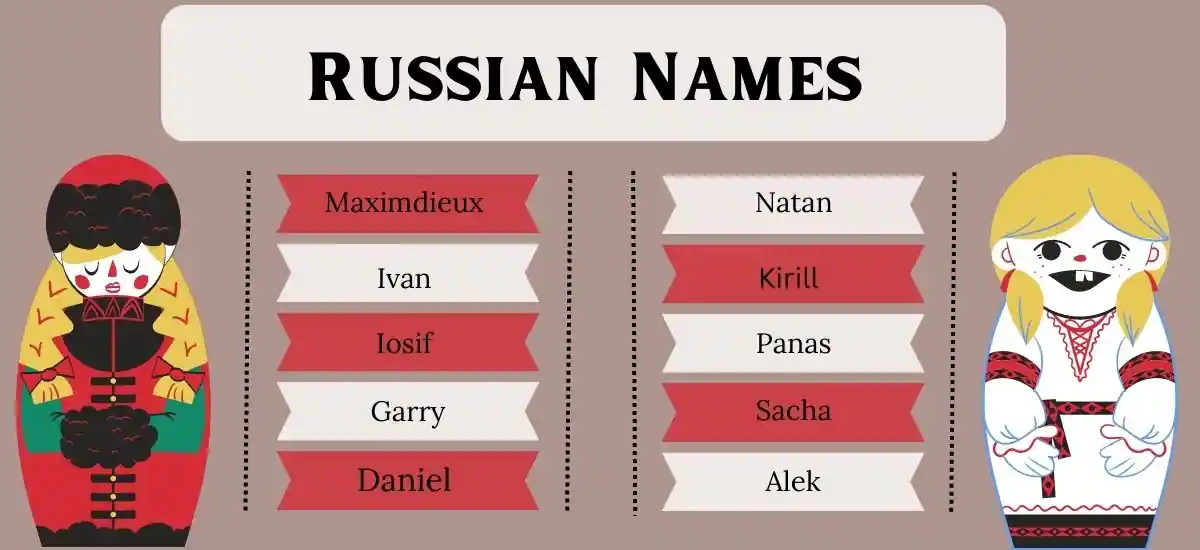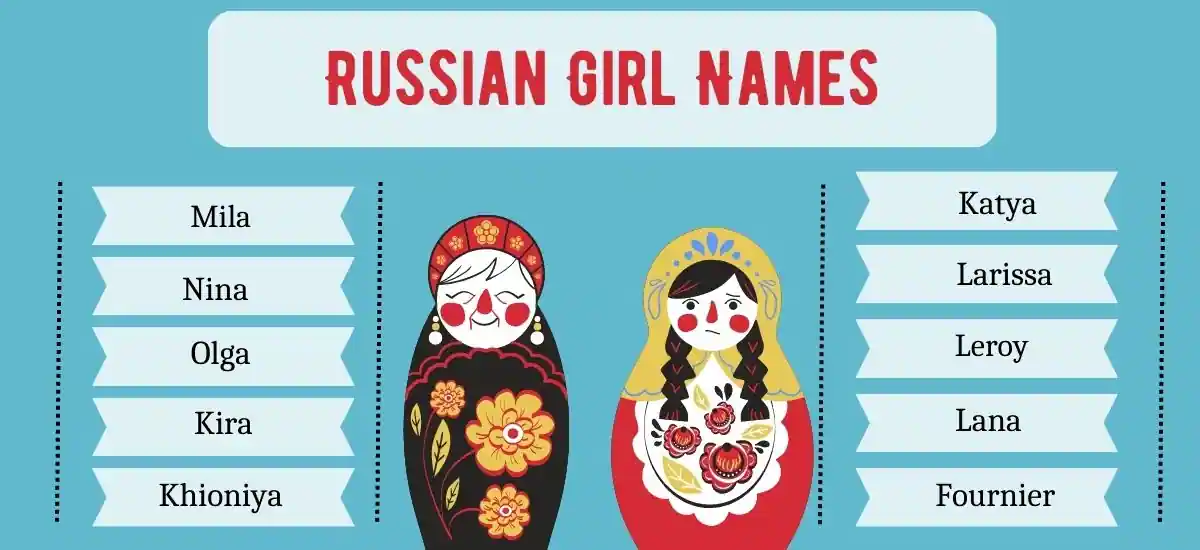Uni Russian names have long captivated the hearts and minds of those who appreciate the beauty of Slavic culture. These names carry deep historical significance, cultural richness, and a unique phonetic charm that sets them apart. For individuals seeking a distinctive name with profound meaning, uni Russian names offer an intriguing option. They reflect the resilience, elegance, and timeless allure of Russian heritage, making them an excellent choice for modern families looking to honor their roots or embrace a new cultural tradition.
Delving into the world of uni Russian names reveals a treasure trove of linguistic diversity and cultural depth. Each name carries its own story, whether rooted in ancient mythology, historical figures, or religious significance. This exploration aims to uncover the origins, meanings, and contemporary relevance of these names, providing readers with valuable insights and inspiration. Whether you're searching for a name for your child or simply fascinated by the cultural nuances of Russian naming conventions, this article will serve as a comprehensive guide.
As we navigate through the nuances of uni Russian names, it's essential to understand their broader context within the global naming landscape. These names often bridge the gap between tradition and modernity, offering a harmonious blend of timeless elegance and contemporary appeal. By examining their structure, symbolism, and cultural implications, we can better appreciate why uni Russian names continue to resonate with people worldwide. Let's embark on this journey of discovery and uncover the hidden gems of Russian nomenclature.
Read also:Sela Ward A Journey Through Her Life And Career
What Makes Uni Russian Names So Unique?
Uni Russian names stand out due to their distinctiveness and depth. Unlike many Western names, they often possess a melodic quality that makes them memorable and appealing. This uniqueness is partly attributed to the Cyrillic alphabet, which introduces sounds and combinations not commonly found in English or Latin-based languages. Additionally, uni Russian names often carry specific meanings tied to nature, virtues, or historical events, enhancing their cultural significance. For instance, names like "Sofia" symbolize wisdom, while "Ivan" reflects God's grace, making each name a reflection of personal values and aspirations.
Another factor contributing to their uniqueness is the rich history behind uni Russian names. Many originate from ancient Slavic tribes, Byzantine influences, or Orthodox Christianity, each layer adding to their complexity and charm. This historical depth ensures that uni Russian names are not merely labels but narratives that connect individuals to their heritage. Furthermore, the adaptability of these names to various linguistic contexts makes them versatile yet authentic, appealing to both traditionalists and modernists alike.
Where Do Uni Russian Names Come From?
The origins of uni Russian names trace back thousands of years, weaving through the tapestry of Slavic history and culture. Initially, early Slavic tribes used names inspired by natural elements, animals, and celestial bodies, reflecting their close connection to nature. As Christianity spread across Russia, biblical names became prominent, often adapted to fit the local linguistic landscape. For example, "Maria" evolved into "Mariya," retaining its spiritual essence while embracing Russian phonetics. This blending of pagan and Christian traditions created a rich tapestry of uni Russian names that continue to thrive today.
Moreover, the influence of neighboring cultures, such as Greek, Norse, and Mongolian, further enriched the naming conventions in Russia. Each interaction introduced new elements, expanding the repertoire of uni Russian names and enhancing their diversity. This historical interplay between indigenous traditions and external influences has resulted in a vibrant naming culture that celebrates both unity and individuality. Understanding these origins provides valuable context for appreciating the significance of uni Russian names in contemporary society.
How Are Uni Russian Names Structured?
Uni Russian names typically follow a structured format that includes a given name, patronymic, and surname. This tripartite system reflects the importance of family lineage and personal identity in Russian culture. The given name, often chosen for its meaning or connection to a saint, serves as the primary identifier. The patronymic, derived from the father's name, adds a layer of familial connection, while the surname ties the individual to their broader ancestral roots. For example, "Ivan Sergeyevich Tolstoy" breaks down as Ivan (given name), Sergeyevich (patronymic meaning son of Sergey), and Tolstoy (surname).
This structure not only highlights the significance of family ties but also emphasizes the continuity of cultural heritage. Each component of a uni Russian name carries weight and meaning, contributing to the overall identity of the individual. Furthermore, the flexibility of this system allows for creative variations while maintaining traditional integrity. By understanding the structure of uni Russian names, one gains insight into the cultural values and social dynamics of Russian society.
Read also:Topher Graces Most Memorable Tv Roles A Journey Through Iconic Characters
Why Should You Choose a Uni Russian Name?
Selecting a uni Russian name for your child or yourself can be a rewarding decision. These names offer a blend of uniqueness, meaning, and cultural richness that sets them apart from more common alternatives. They provide an opportunity to celebrate Slavic heritage or embrace a new cultural tradition, fostering a deeper connection to global diversity. Additionally, uni Russian names often possess a timeless quality that transcends fleeting trends, ensuring their relevance across generations.
From a practical standpoint, uni Russian names can enhance personal branding and professional opportunities. In an increasingly interconnected world, having a name with distinct phonetic qualities can make one stand out in professional settings, particularly in creative or international fields. Moreover, the depth of meaning associated with these names can inspire personal growth and self-awareness, encouraging individuals to align their identity with their values. Whether for personal or professional reasons, choosing a uni Russian name can be a transformative experience.
What Are Some Popular Uni Russian Names?
Among the most popular uni Russian names, "Anna" stands out as a timeless favorite, symbolizing grace and kindness. Another beloved choice is "Alexander," which conveys strength and protection, making it a popular option for both boys and girls. "Darya," meaning "mother of the sea," offers a gentle yet powerful connotation, appealing to those who appreciate natural beauty. "Nikolai" reflects victory and triumph, resonating with individuals who value resilience and perseverance. These names, among others, exemplify the versatility and depth of uni Russian names, catering to diverse preferences and cultural affiliations.
- Anna - Grace and kindness
- Alexander - Strength and protection
- Darya - Mother of the sea
- Nikolai - Victory and triumph
Which Uni Russian Names Are Best for Boys?
When it comes to uni Russian names for boys, options like "Dmitri," "Vladimir," and "Pavel" top the list. "Dmitri" signifies love and devotion, making it a heartfelt choice for parents seeking a name with emotional depth. "Vladimir," meaning "ruler of the world," carries a regal connotation, appealing to those who value leadership qualities. "Pavel," the Russian equivalent of Paul, reflects humility and wisdom, offering a balanced and thoughtful option. Each of these names brings its own character and significance, ensuring a meaningful connection for the bearer.
Which Uni Russian Names Are Best for Girls?
For girls, uni Russian names such as "Ekaterina," "Olga," and "Tatiana" shine brightly. "Ekaterina" embodies purity and virtue, making it a classic choice for those who appreciate elegance. "Olga," meaning holy and sacred, reflects spiritual depth, resonating with individuals who value inner strength. "Tatiana," associated with the Roman goddess of the dawn, brings a sense of renewal and optimism. These names, among others, showcase the rich diversity and beauty of uni Russian names for girls, offering something for every taste and preference.
How Do Uni Russian Names Reflect Cultural Values?
Uni Russian names serve as a mirror reflecting the core values and beliefs of Russian culture. They often emphasize virtues such as wisdom, courage, and compassion, aligning with the philosophical and spiritual traditions of the region. For instance, names like "Semyon" (hearing) and "Varvara" (foreigner) highlight the importance of perception and inclusivity, encouraging individuals to embrace diverse perspectives. This cultural reflection extends beyond personal identity, influencing societal norms and collective consciousness, reinforcing the interconnectedness of language, culture, and values.
Can Uni Russian Names Be Adapted for Modern Use?
Absolutely! Uni Russian names can be easily adapted to suit modern tastes and preferences. Many contemporary parents choose to shorten or modify traditional names to create more accessible versions without losing their cultural essence. For example, "Aleksandra" becomes "Sasha," or "Aleksandr" turns into "Sasha," maintaining the original meaning while enhancing usability. Additionally, combining uni Russian names with international names creates hybrid options that celebrate multiculturalism, such as "Maria-Louise" or "Nikolai-James." This adaptability ensures that uni Russian names remain relevant and appealing in today's globalized world.
What Are Some Modern Variations of Uni Russian Names?
Modern variations of uni Russian names include creative spellings, alternative pronunciations, and blended forms. For instance, "Yelena" might become "Elena" or "Helena," depending on regional preferences. Similarly, "Mikhail" could transform into "Michael" or "Mika," offering flexibility while retaining its core identity. These variations allow individuals to personalize their names while honoring their cultural roots. Furthermore, incorporating uni Russian names into compound names or nicknames adds an extra layer of individuality, making them even more distinctive and meaningful.
What Are the Challenges of Using Uni Russian Names?
While uni Russian names offer numerous benefits, they can pose challenges, particularly in non-Russian speaking environments. Pronunciation difficulties and unfamiliarity with Cyrillic-based names may lead to miscommunication or confusion. To overcome these obstacles, parents and individuals can provide phonetic guides or simplified versions of their names. Additionally, educating others about the cultural significance and beauty of uni Russian names can foster appreciation and understanding. By addressing these challenges proactively, one can ensure that their uni Russian name is embraced and respected in any setting.
How Can You Incorporate Uni Russian Names Into Your Life?
Incorporating uni Russian names into your life can be as simple as selecting one for your child, adopting one as a nickname, or using them in creative projects. For those interested in genealogy, exploring uni Russian names can unlock fascinating insights into family history and cultural heritage. Writers, artists, and musicians may find inspiration in these names, using them to add authenticity and depth to their work. Ultimately, uni Russian names offer endless possibilities for self-expression and cultural exploration, enriching the lives of those who embrace them.
Conclusion: Embrace the Beauty of Uni Russian Names
Uni Russian names represent a fascinating intersection of history, culture, and personal identity. Their unique structure, rich meanings, and adaptability make them a valuable addition to the global naming landscape. Whether you're searching for a name that reflects your heritage, celebrates diversity, or simply inspires creativity, uni Russian names provide a wealth of options to explore. By embracing these names, we not only honor the traditions of the past but also contribute to the evolving tapestry of human culture. So, take the time to discover the beauty of uni Russian names and let them inspire your journey of self-discovery and connection.
Table of Contents
- What Makes Uni Russian Names So Unique?
- Where Do Uni Russian Names Come From?
- How Are Uni Russian Names Structured?
- Why Should You Choose a Uni Russian Name?
- What Are Some Popular Uni Russian Names?
- Which Uni Russian Names Are Best for Boys?
- Which Uni Russian Names Are Best for Girls?
- How Do Uni Russian Names Reflect Cultural Values?
- Can Uni Russian Names Be Adapted for Modern Use?
- How Can You Incorporate Uni Russian Names Into Your Life?


